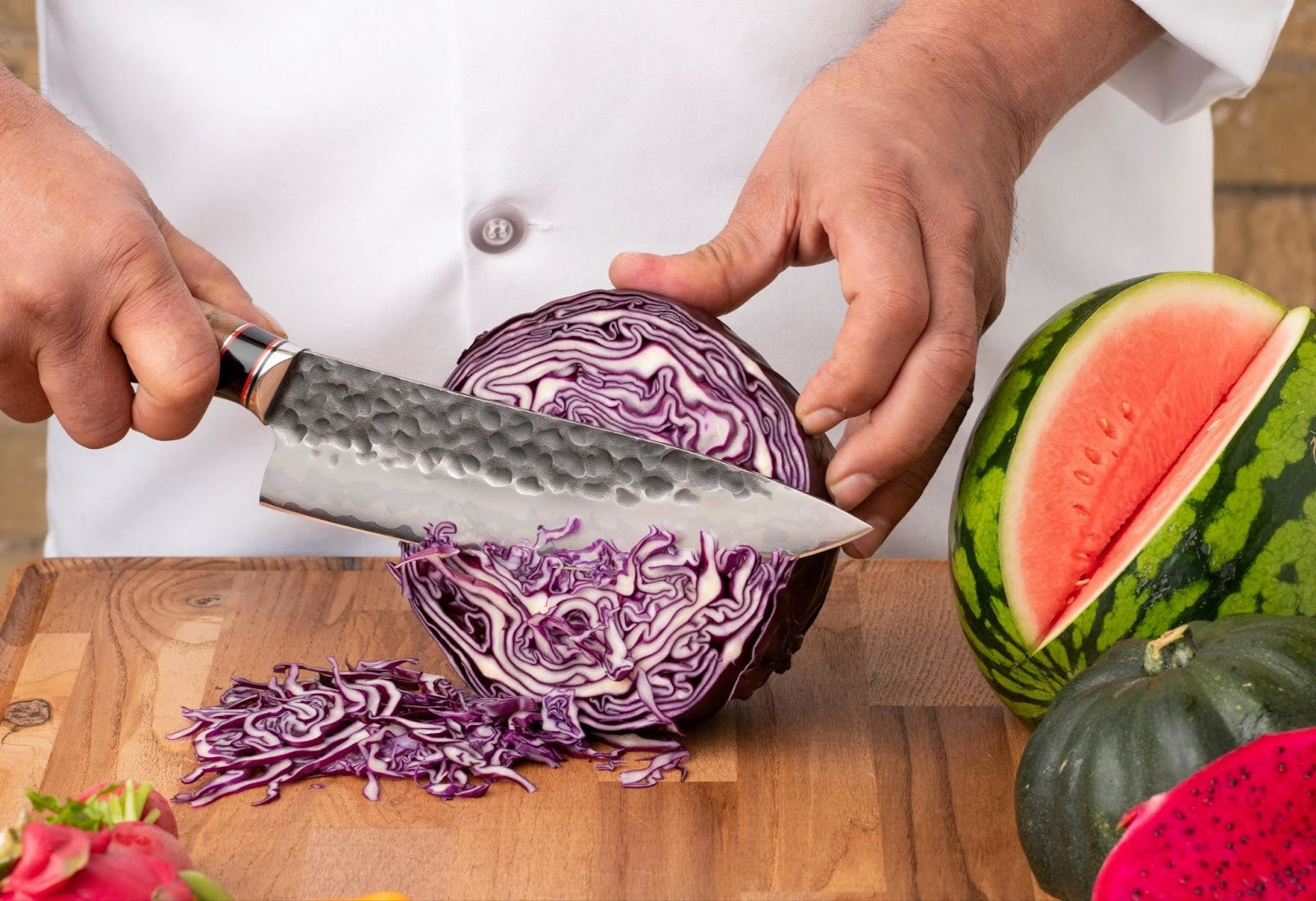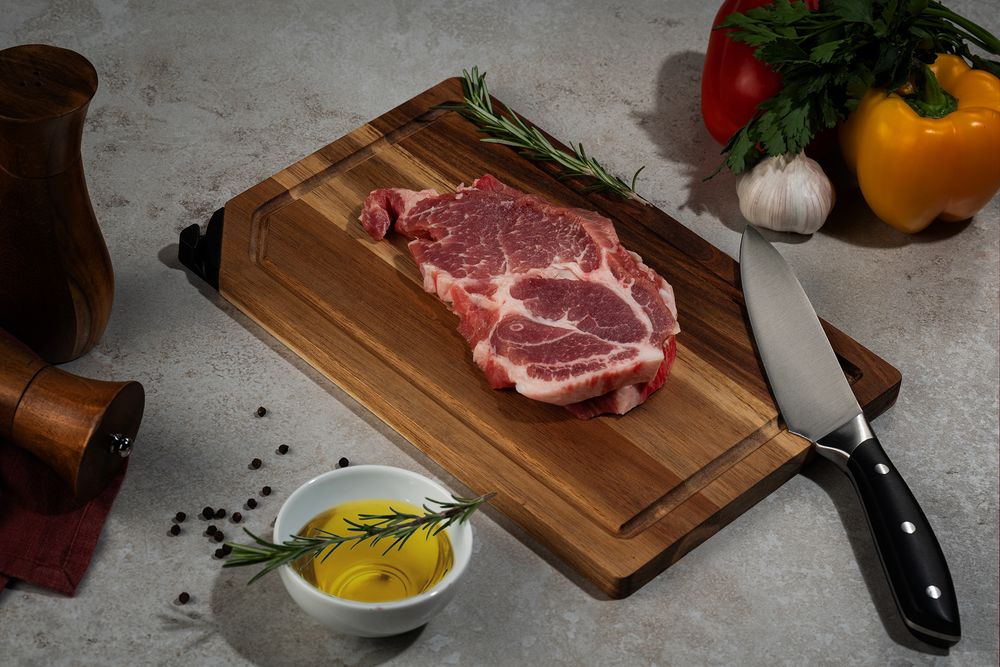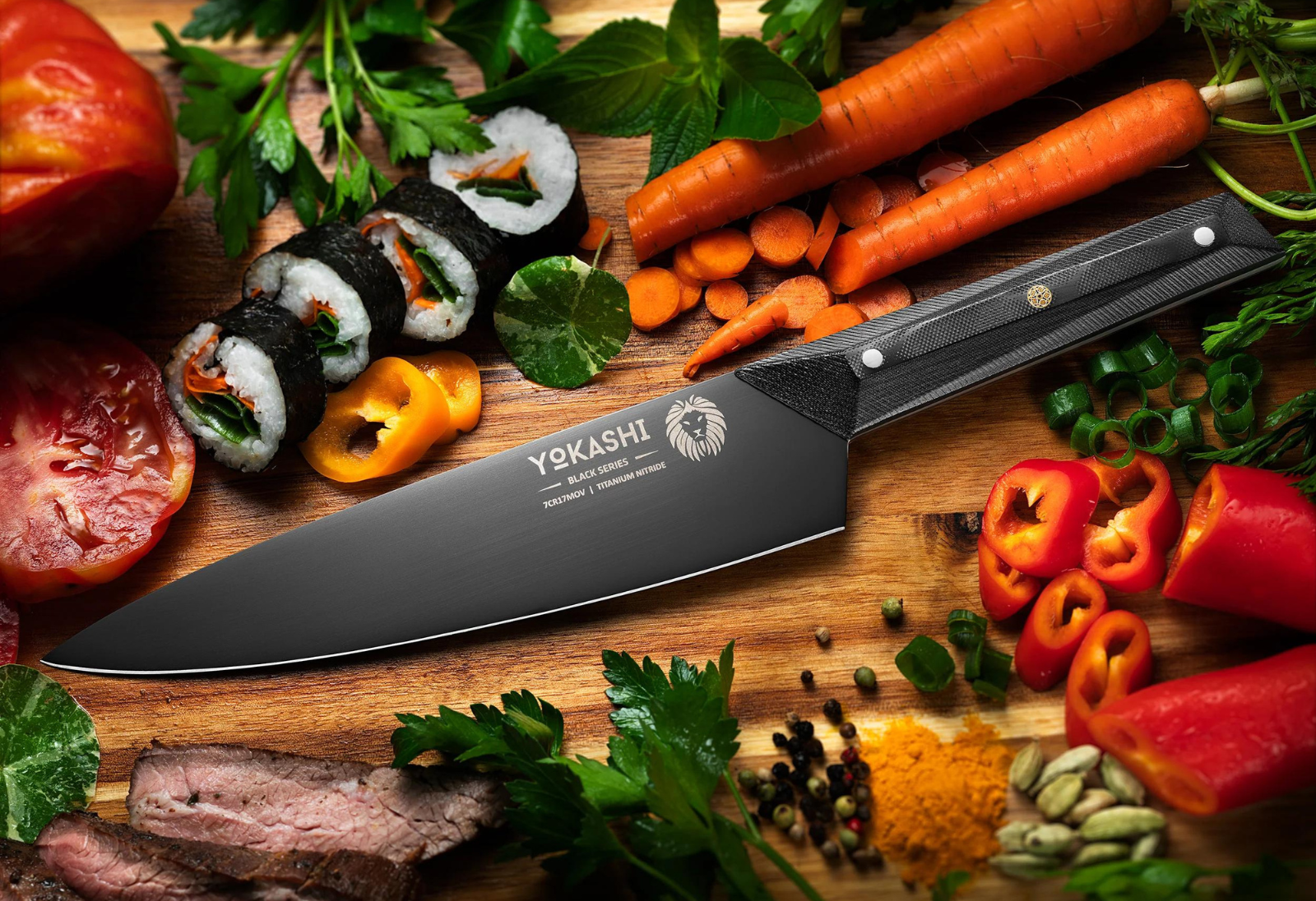
Why Pick Damascus Steel for Your Japanese Chef Knife
TLDR:
- Damascus steel knives are known for their unique patterns and exceptional edge retention. They offer a blend of beauty and functionality.
- These knives require proper care, such as regular hand washing and sharpening. This maintenance ensures their long-lasting performance.
- Compared to stainless and high-carbon steel, Damascus steel provides a balance of durability and sharpness. This makes them a versatile choice for various kitchen tasks.
Damascus steel is an extraordinary material known for its unique beauty and impressive performance. When you're choosing a Japanese chef knife, the material it's made from can make a big difference in your cooking experience. Damascus steel, with its rich history and exceptional qualities, stands out as an excellent choice for Japanese chef knives.
This type of steel isn't just about looks—though its distinctive patterns are certainly eye-catching. It's also about functionality. The right knife can change the way you prepare food, making your tasks easier and more enjoyable. By understanding what Damascus steel offers, you can appreciate why it's a preferred material among both professional chefs and cooking enthusiasts. In this article, we'll explore the origins, benefits, and practical uses of Damascus steel in Japanese chef knives, providing you with a clear picture of why investing in one could be a game-changer for your kitchen.
What is Damascus Steel?
History & Origin
Damascus steel has a fascinating history that dates back to ancient times. Originally, it was crafted using techniques that might seem like alchemy today. The steel was known for its distinctive patterns, which looked like flowing water or intricate waves. These patterns weren’t just for show—they indicated a level of quality and craftsmanship that set Damascus steel apart.
Historically, Damascus steel was used to make swords that were both strong and flexible, capable of holding a sharp edge even after extensive use. The original methods of creating Damascus steel were lost over time, but modern smiths have revived these techniques, blending traditional craftsmanship with new technology. This revival has made Damascus steel popular again, especially in high-quality chef knives where performance matters. Unlike other steels that are typically uniform in appearance and composition, Damascus steel combines multiple layers of different metals. This layering process is what gives it both its unique look and its superior properties.
The Making Process
The making process of Damascus steel is an art in itself. It involves repeatedly folding and hammering layers of metal to create a strong, resilient blade. The metals are heated, hammered, and folded over many times, resulting in hundreds or even thousands of individual layers. This process not only strengthens the steel but also creates the beautiful, wavy patterns that Damascus steel is famous for. It's a labor-intensive process that requires a great deal of skill and patience. A skilled blacksmith can manipulate the layers to create intricate designs, making each piece a unique work of art.
One key reason why Damascus steel requires such skilled craftsmanship is the precision needed at every stage of the process. The temperatures must be just right, the hammering must be consistent, and the folding must be precise. Any misstep can compromise the integrity of the blade. This meticulous process ensures that a Damascus steel knife is not only beautiful but also exceptionally durable and sharp.
Advantages of Damascus Steel
Durability & Strength
Choosing a knife made from Damascus steel offers several distinct advantages, particularly in terms of durability and strength. One of the standout features is its superior edge retention. Because of the unique forging process, Damascus steel blades hold their edge much longer compared to other materials. This means you’ll spend less time sharpening and more time enjoying a consistently sharp knife.
Moreover, the longevity of a Damascus steel blade is impressive. With proper care, these knives can last a lifetime, making them a worthy investment. The combination of durability, sharpness, and versatility ensures that Damascus steel knives remain in top condition, providing a consistently excellent cutting experience.

Sharpness & Precision
When it comes to sharpness and precision, Damascus steel stands out as well. The sharp edge of a Damascus steel knife is ideal for making precise cuts, which is particularly important in tasks like filleting fish or finely chopping herbs. A well-maintained Damascus knife can glide effortlessly through food, allowing for cleaner cuts and better presentation. Even better, these knives are relatively easy to sharpen, thanks to the high-quality metals used in their construction.
A sharp Damascus steel knife can slice through the tomato cleanly and effortlessly, making your kitchen tasks smoother and more enjoyable. This level of performance is appreciated not only by professional chefs but also by home cooks who value precision and ease of use.
Another advantage is the knife's performance across various kitchen tasks. Whether you’re dicing onions, deboning chicken, or slicing bread, a Damascus steel knife can handle it all with ease. It’s versatile enough to replace multiple kitchen knives, simplifying your cooking process.
Aesthetic Appeal of Damascus Steel
Unique Patterns
One of the most striking aspects of Damascus steel is its aesthetic appeal. The unique patterns that form during the forging process make each blade a visual masterpiece. These patterns often resemble flowing water or intricate waves, giving the blade an artistic quality. No two blades are exactly alike, ensuring that your knife is truly one-of-a-kind.
The distinctive patterns on a Damascus steel knife can become a conversation starter, impressing guests and fellow cooking enthusiasts. This visual appeal is particularly valued in professional kitchens where presentation matters. A chef wielding a beautifully crafted Damascus steel knife signals a commitment to quality and attention to detail.
Craftsmanship & Tradition
The craftsmanship involved in making Damascus steel knives is another aspect that enhances their aesthetic value. These knives are often seen as symbols of high craftsmanship, rooted in historical sword-making traditions. The process of layering and forging the steel requires a high level of skill and precision, making each blade a testament to the blacksmith's expertise. This connection to tradition and craftsmanship adds a layer of depth to the knife, making it more than just a tool but a piece of art.
Moreover, the aesthetic appeal of Damascus steel goes beyond its visual beauty. It also represents a blend of form and function. The intricate patterns are a byproduct of the layering process that enhances the blade's strength and durability. So, while the knife looks stunning, it also performs exceptionally well. This combination of beauty and functionality makes Damascus steel knives a prized possession in any kitchen.
Practical Use in the Kitchen
Versatility
One of the remarkable features of Damascus steel knives is their versatility in the kitchen. These knives are suitable for a wide range of cutting and slicing tasks, making them a valuable tool for any cook. Whether you're dicing vegetables, slicing through meat, or even cutting delicate herbs, a Damascus steel knife can handle it all with ease.
For example, think about preparing a dish that requires multiple types of cuts—like a stir-fry where you need to chop vegetables, slice meat, and finely mince garlic. Instead of switching between different knives, you can rely on a single Damascus steel knife to perform all these tasks efficiently. This versatility can simplify your cooking process and save you valuable time in the kitchen.
Damascus steel knives also perform exceptionally well with different types of food. The sharp edge and durable blade make cutting through tough vegetables like butternut squash or dense meats like beef brisket a breeze. At the same time, the knife is delicate enough to handle more fragile items, like slicing through a ripe tomato without crushing it. This adaptability makes Damascus steel knives a favorite among both professional chefs and home cooks.

Maintenance & Care
To keep your Damascus steel knife in top condition, proper maintenance and care are essential. Cleaning your knife after each use is important to prevent any food particles from sticking to the blade and causing damage. It's best to hand wash your knife with mild soap and water, then dry it immediately with a soft cloth. Avoid putting Damascus steel knives in the dishwasher, as the harsh detergents and high heat can be detrimental to the blade.
Regular sharpening and honing are also key to maintaining the knife's sharp edge. While Damascus steel knives have excellent edge retention, they still require periodic sharpening to stay in optimal condition. Using a honing rod before each use can help maintain the edge, and a professional sharpening stone can be used when you notice the blade starting to dull.
Long-term care tips include storing your knife properly to protect the blade. Using a knife block, magnetic strip, or blade guard can prevent the edge from coming into contact with other utensils or hard surfaces, which could cause chips or dulling. Additionally, applying a light coat of food-safe oil to the blade can help prevent rust and corrosion, especially if you live in a humid environment.
Taking these maintenance steps ensures that your Damascus steel knife remains a reliable and efficient tool in your kitchen. The combination of versatility, performance, and proper care makes Damascus steel knives a worthy investment for anyone looking to enhance their cooking experience. The satisfaction of using a well-maintained, high-quality knife can truly transform your culinary tasks, making them more enjoyable and less of a chore.
Comparing Damascus Steel with Other Knife Materials
When deciding on a chef knife, it’s helpful to compare Damascus steel with other common materials like stainless steel and high-carbon steel. Each material has its own set of strengths and weaknesses, and understanding these can help you make an informed choice.
Stainless Steel
Starting with stainless steel, it’s a popular material for kitchen knives due to its rust resistance and ease of maintenance. Stainless steel knives are typically more affordable than Damascus steel knives, making them accessible for a wider range of budgets. However, they often fall short in terms of edge retention and sharpness. For example, while a stainless steel knife might be convenient for quick, everyday tasks, you might find yourself sharpening it more frequently to maintain its cutting performance. The cost difference is evident—stainless steel knives are generally cheaper upfront, but the frequent need for sharpening can add to the maintenance costs over time.
In contrast, Damascus steel knives excel in edge retention and overall durability. The intricate process of layering different metals not only creates beautiful patterns but also results in a blade that’s both strong and flexible. This means you’ll have a knife that stays sharp longer, reducing the frequency of sharpening. While the initial cost of a Damascus steel knife is higher, the long-term value it offers through durability and performance can justify the investment.
High-Carbon Steel
High-carbon steel knives are known for their exceptional sharpness and edge retention. Chefs who require precise cuts often favor them. However, high-carbon steel is more prone to rust and requires diligent care to maintain its condition. For instance, you might need to dry the blade immediately after washing and apply mineral oil regularly to prevent rust. This level of maintenance can be cumbersome for some users.
On the other hand, Damascus steel offers a good balance between the sharpness of high-carbon steel and the rust resistance of stainless steel. While it’s not completely maintenance-free, it doesn’t require as much attention as high-carbon steel. This makes it a practical choice for those who want the best of both worlds—sharpness and ease of care.
In terms of overall performance in the kitchen, Damascus steel knives often come out on top. They combine the sharpness and edge retention of high-carbon steel with the durability and rust resistance of stainless steel. This makes them versatile tools for various kitchen tasks, from chopping vegetables to slicing meat. So, if you’re looking for a knife that delivers consistent performance with less frequent maintenance, Damascus steel is a strong contender.
Why Damascus Steel Stands Out
In summary, Damascus steel knives offer a remarkable blend of beauty, durability, and performance. Whether you're a professional chef or a home cook, these knives can elevate your culinary experience. Their superior edge retention, striking aesthetic, and versatility make them a valuable addition to any kitchen. While they may require a higher initial investment and some care, the long-term benefits far outweigh these costs. So, if you're looking for a knife that combines functionality with artistry, Damascus steel is an excellent choice.


